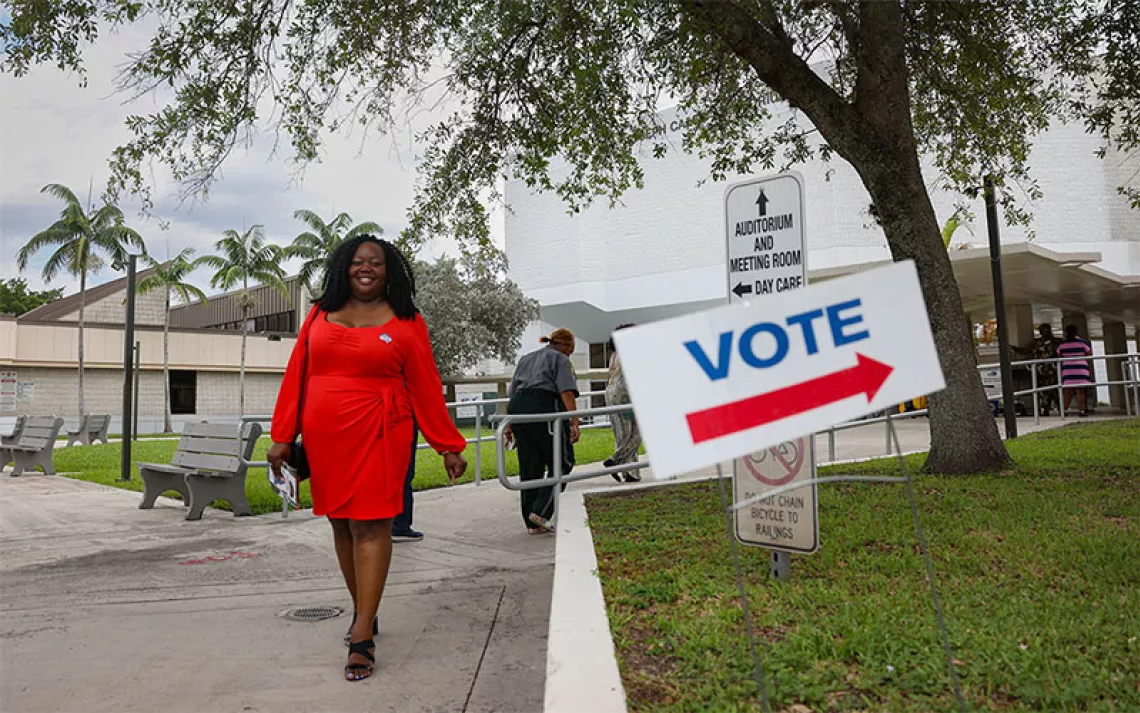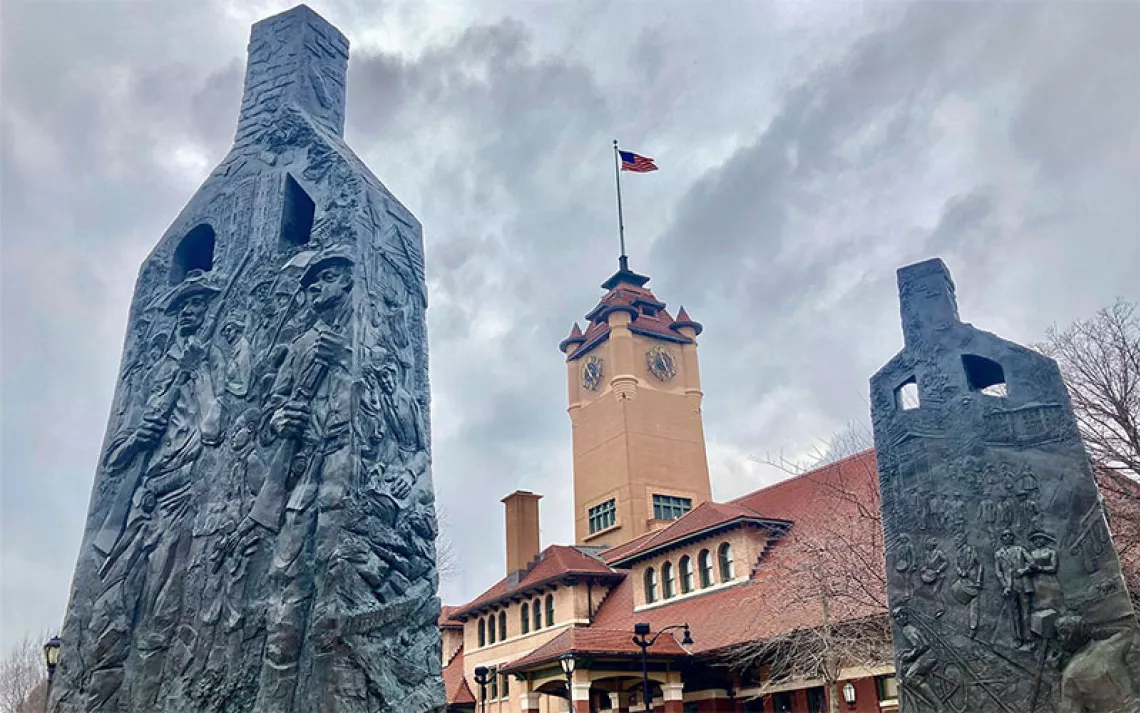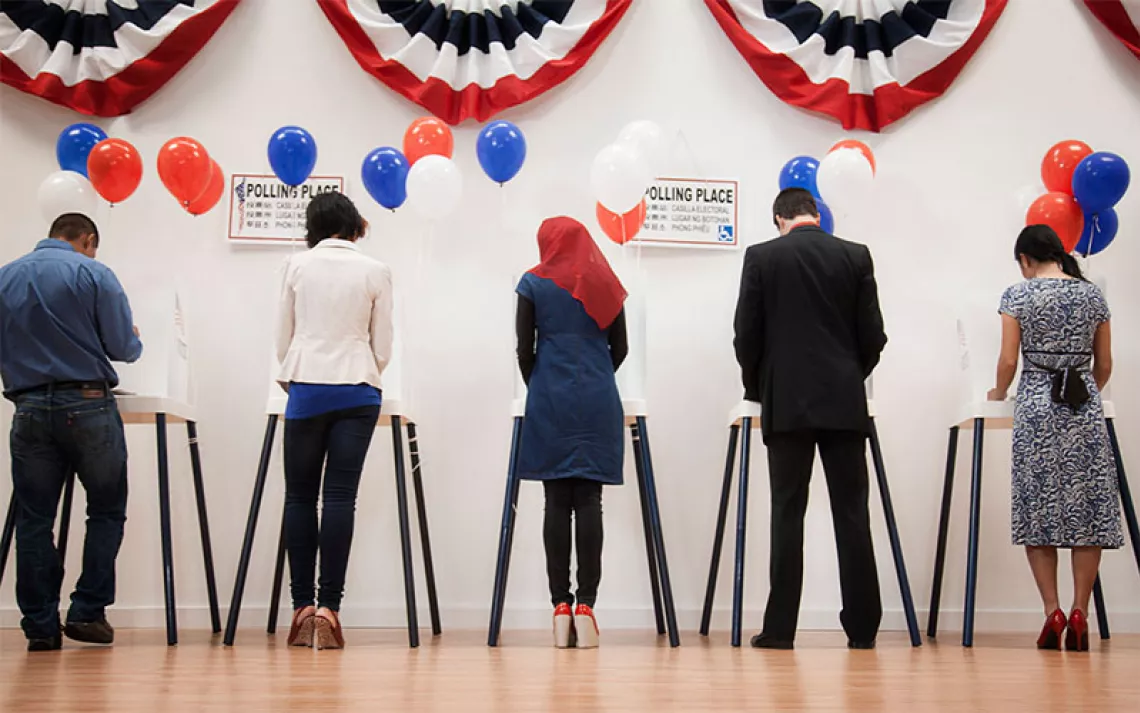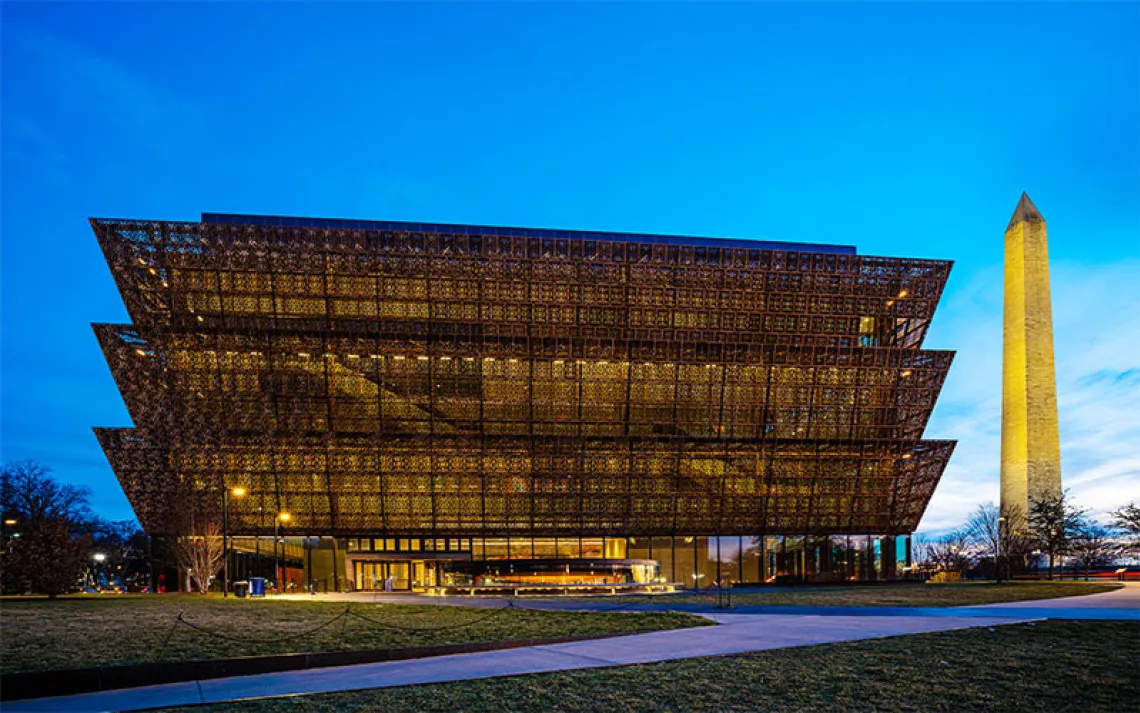One Planet, One Vote
Protecting our democracy is how we save wild places
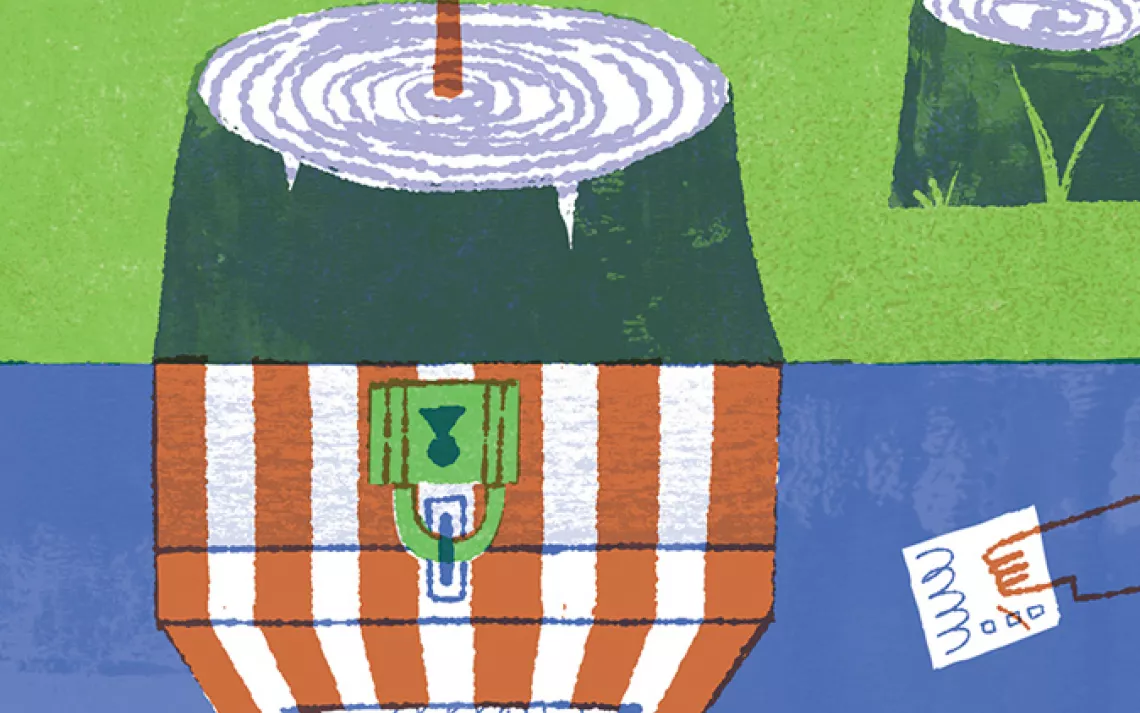
Illustration by James Heimer
"Democracy is never a thing done," poet and former librarian of Congress Archibald MacLeish wrote in his 1941 book, The American Cause. "Democracy is always something that a nation must be doing." When MacLeish, who was born in May 1892 (the same month the Sierra Club was founded), wrote those lines, democracy seemed in mortal peril. Many Americans had watched in horror as fascism consumed almost all of Europe—and as fascism found sympathizers here in the United States. MacLeish was warning against complacency. If we don't work to strengthen and improve our democracy—or worse, if we fail to defend it from attack—it will slip through our fingers. Just as environmental victories are never final (the next pipeline proposal or oil-drilling permit is always around the corner), the work of preserving our democracy is never fully done.
I know I'm not alone in feeling disturbed by the ways in which democracy is under siege in the United States today. Six years ago, the Supreme Court struck down key provisions of the 1965 Voting Rights Act, a decision that led to the most egregious attacks on the right to vote since the systemic disenfranchisement of African Americans during the Jim Crow era. In last year's elections, voters in 24 states faced more restrictions than they had in 2010, including discriminatory voter ID laws and limits on early voting. The true intention of these restrictions has been not to curb (virtually nonexistent) voter fraud but, almost always, to benefit Republican candidates by suppressing the votes of people of color and young voters. Along with the long-standing problems of gerrymandered districts that favor incumbent politicians and untraceable "dark money" campaign contributions (made legal by a separate Supreme Court decision), this wave of voter-suppression tactics undermines the democratic ideal of one person, one vote.
These attacks on democracy are relevant to the Sierra Club because, of all the tools we rely on to fulfill our mission, the most indispensable is the principle that every citizen can participate in the electoral process. Any assault on our democracy is also an assault on public lands, healthy communities, and a stable climate. If we fail to defend our democracy, then nothing that we hope to protect—and nothing that we've already protected⎯will be safe.
How can we ensure that everyone who wants to vote can do so? Just as a muscle only gets stronger if you use it, the single most powerful way to protect voting rights is to exercise them. In 2018, voters across the country approved more than a dozen pro-democracy ballot initiatives that, among other reforms, replaced legislative gerrymandering with independent redistricting commissions, implemented same-day and automatic voter registration, and put new restrictions on campaign contributions. Perhaps most inspiring was Florida voters' repeal of a Jim Crow-era state constitutional provision that barred anyone previously convicted of a felony from voting—for life. Now, one in 10 once-disenfranchised Floridians—about 1.4 million potential voters and roughly 20 percent of potential African American voters—will be able to vote in 2020.
Encouraging as those results are, we have much more work to do, and the next two years will be crucial to improving how our democracy functions. For the Sierra Club, that work is as important as protecting wild places and promoting clean energy. That's why in 2013, we helped launch the Democracy Initiative, a network of groups committed to getting money out of politics and ensuring that all citizens can exercise their right to vote. This coalition understands that without a healthy democracy, our nation can't make progress on the pressing challenges confronting us. By working together, democratically, we can restore people's faith that ours is a government truly of, by, and for the people—and for the planet too.
This article appeared in the March/April 2019 edition with the headline "One Planet, One Vote."
 The Magazine of The Sierra Club
The Magazine of The Sierra Club
